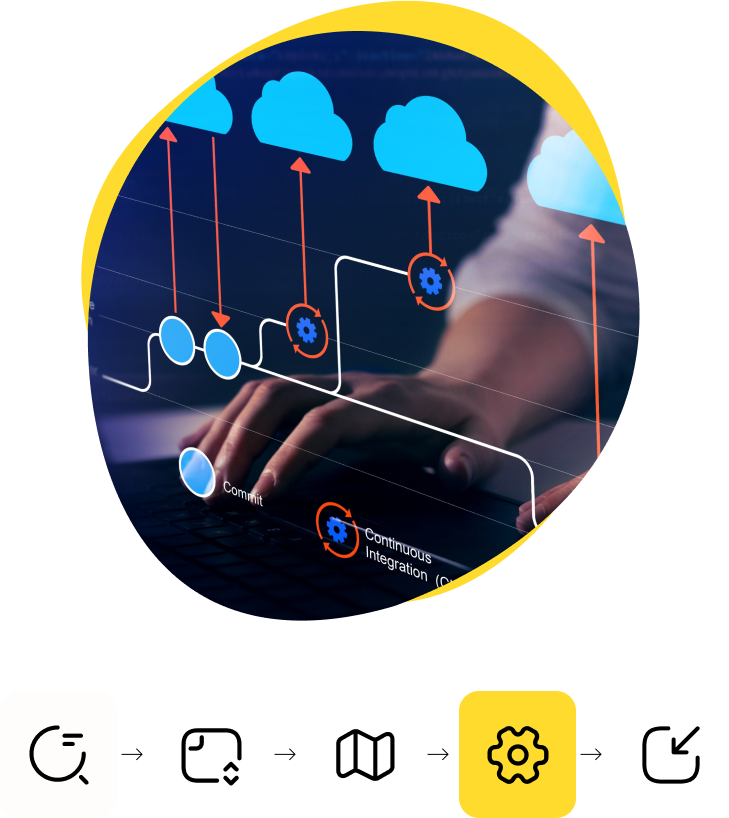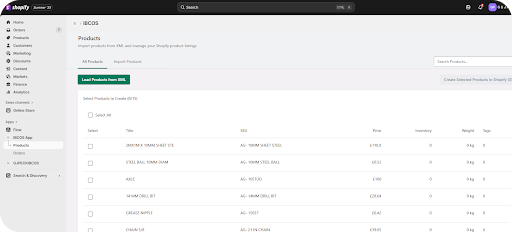

Got an Email Template, Landing page, or Banner requirement? Head to Email Mavlers




The client is a construction company that brings together expert building services and a dedicated Tyre Division, offering an end-to-end solution to keep both projects and vehicles on track. From groundwork to final build, their construction team focuses on safety, efficiency, and precision for commercial, industrial, and domestic projects.


The client’s vision was clear ~ launch a high-performing Shopify store fully integrated with their pre-existing IBCOS software, that mirrored the precision and reliability of their offline operations.
With thousands of SKUs and multiple product categories managed through IBCOS, their dealership management software, the real challenge lay in building an integration that worked in real time. Every product update, from pricing and descriptions to stock adjustments, needed to flow seamlessly into Shopify, eliminating time-consuming manual updates and the risk of human error.




Like many businesses balancing robust internal systems with modern e-commerce needs, the client had a few key hurdles:
IBCOS handles a variety of attributes, such as supplier codes, class codes, detailed descriptions, and vendor selections, that don’t naturally align with Shopify’s fields.
Manual uploads were slowing their operations and causing delays. What they needed was an always-on sync that could push updates instantly to the online store.
With plans to add more dealer sites in the future, they needed an integration strong enough to handle thousands of SKUs without breaking under scale.
Fields such as depot stock locations and vendor selections required custom solutions to map accurately and maintain clean product data.
At Mavlers, we know that integrations like these are never just “plug and play.” Off-the-shelf connectors often fall short when the data is complex, the stakes are high, and downtime isn’t an option. Here’s how we delivered a future-ready integration that exceeded expectations:





We began with an in-depth discovery phase, collaborating with the client’s IT and operations teams. By mapping their IBCOS data fields to Shopify’s structure, we created a blueprint that accounted for every attribute, even the custom requirements that others often overlook.
Using Shopify and IBCOS APIs, we developed a middleware connector with automated cron jobs that synced 30,000+ products via XML file in near real time. This ensured updates to prices, stock levels, or product descriptions were reflected online within minutes, without manual intervention. As long as the client has added all the product data, it will sync directly into their Shopify dashboard.

Our development team built custom logic to map complex IBCOS attributes accurately into Shopify.
| IBCOS field | Mapped to Shopify field |
|---|---|
|
Product Descriptions & Titles
|
Shopify Product Descriptions
|
|
Price & Cost Fields
|
Shopify Pricing Model
|
|
Supplier Codes / Tags
|
Shopify Product Tags
|
|
Depot Stock Locations
|
Shopify Inventory Locations
|
|
Vendor Selection Fields
|
Shopify Vendor Field
|
Before going live, we ran end-to-end validation with real-world datasets, including edge scenarios such as stock-outs, rapid price changes, and multi-location inventory updates. This guaranteed flawless synchronization from day one.
After launch, our QA team closely monitored the integration, ensuring data accuracy and resolving any anomalies promptly. This proactive approach helped the client get off to a strong start and stay confident in the system’s reliability.

The impact of the integration was immediate and measurable:
Every product update, from pricing to inventory changes, is now automatically reflected in the Shopify store, eliminating errors and delays.
What once took hours of manual uploads now happens automatically, freeing the client’s team to focus on higher-value business activities.
Improved consistency across online and offline systems has reduced errors and improved customer trust.
Adding new dealer sites is now seamless, and integrations can be set up in just 7–8 hours per site, including QA.





| Impact area | Benefit delivered |
|---|---|
| Operational Efficiency | 90% less manual work and faster internal processes |
| Data Accuracy | Real-time sync ensures consistent product information online and offline |
| Time-to-Market | New products and updates go live instantly |
| Scalability | Dealer website integrations completed in under 8 hours |